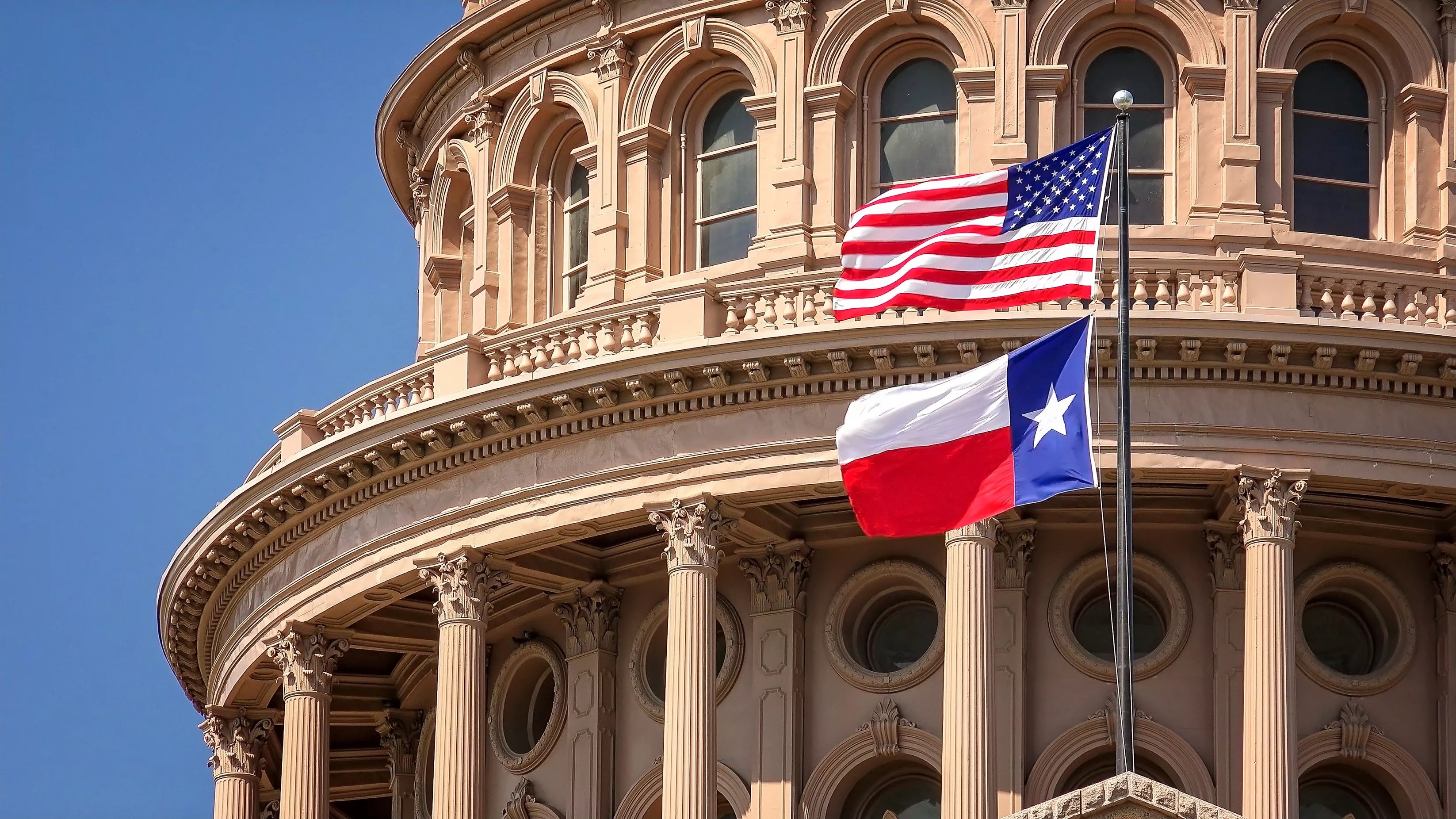
Adobe Stock

Audio By Carbonatix
The Texas Legislature is moving full speed ahead on a bill that would introduce the Ten Commandments to the classroom despite a First Amendment legal challenge all but promised by those who oppose it.
The bill would require every public K-12 classroom across Texas to display a framed or “durable” copy of the Ten Commandments “in a conspicuous place” that can be seen by anyone in the room. And if you’re thinking, “Wait, do they mean the ‘I am the lord, thy God, thou shalt have no other gods before me,’ Ten Commandments?” You’d be exactly right.
And if you’re thinking, “This bill again?!” That’s because this bill seems to come up every single legislative session, although this session feels like it may be the one where Republicans can finally muster up enough juice to get the job done.
Every Republican State Senator sponsors Senate Bill 10, which Lt. Gov. Dan Patrick has marked as a top legislative priority. The bill’s low filing number indicates just how much of a priority it is. While thousands of bills are submitted over the legislative period, the lowest bill numbers are reserved for the whims of Patrick and Gov. Greg Abbott.
S.B. 10 was placed on the Senate intent calendar on March 6, and a Thursday news release from Patrick said Texas’ second-in-command expects to have his priority bills 1-40 “passed by mid-April.” For Zeph Capo, President of Texas’ American Federation of Teachers (AFT) branch, Lege’s willingness to fast-track a bill that he feels contradicts First Amendment freedom of religion rights is nothing short of frustrating.
“This is the priority that we’re going to focus on? If the Titanic is sinking, this is akin to rearranging the chairs on the deck,” Capo told the Observer. “With everything else going on between school vouchers, employees not getting a raise, schools closing down, school districts passing deficit budgets, this shouldn’t be something that they’re focusing their time on.”
Capo thinks any legislator who doesn’t realize S.B. 10 will pull a legal challenge as soon as it’s passed “has their head in the sand.” After all, a similar law passed by Louisiana legislators was blocked by a federal judge last fall for being “unconstitutional on its face.”
But S.B. 10’s author, Republican Sen. Phil King of Weatherford, says pulling a legal challenge is actually the bill’s goal. King told lawmakers he hopes “it’ll work its way up to the U.S. Supreme Court.” If that happened, the conservative-majority court would have the opportunity to take a swing at the U.S. Constitution’s Establishment Clause, which outlines the separation between church and state.
Chloe Kempf, an attorney with the ACLU of Texas, told the Observer the establishment clause “has been part of the legal fabric of America for decades.” She added that members of the civil rights group have submitted testimony to state legislators outlining the constitutionality of S.B. 10. The bill poses a social issue in addition to a legal one, she added.
“Within Christianity, within Judaism and religions that recognize the Ten Commandments, there are many, many versions. There are legitimate biblical disputes about which version is correct,” Kempf said. “A bill like this could alienate students and make them feel very othered in school, and perhaps even contribute to bullying and harassment against students who don’t prescribe to this very narrow version of the Ten Commandments.”
Matt Krause, a lawyer with the conservative legal group First Liberty Institute, told lawmakers that S.B. 10 could withstand legal challenges because of the Ten Commandments’ historical impact. This sentiment echoes King’s, who claims the Ten Commandments’ introduction to the classroom recognizes the documents’ relevance to Texans’ “national heritage.”
But Kempf disputes that interpretation, arguing that the only reason a document with seemingly historical foundations would be required in a math or science classroom is that its true purpose is to “proselytize to our young Texans.”
House Republicans have filed several pro-Ten Commandments bills that mirror S.B. 10. Though Louisiana’s law remains under legal scrutiny, legislators in Montana, Kentucky, Ohio, North Dakota and Georgia are also working to pass bills to bridge the decades-long divide between schools and religion.
If S.B. 10 passes, it will go into effect at the start of the 2025-2026 school year.
For Capo, introducing the Ten Commandments to the classroom could also put teachers in uncomfortable positions. Since the COVID-19 pandemic, educators have come under a growing amount of scrutiny and pressure from conservatives who claim students are being “indoctrinated” or “groomed” in the classroom.
Now, Capo said, those same conservatives want him to teach an elementary school student what it means to covet thy neighbor’s wife or manservant?
“Most parents don’t want us actually teaching religion. We heard this in the curriculum fights at the State Board of Education that that’s not our place, that’s something for them to learn at home, and I 100% agree with that position,” Capo said. “We may teach about religion from a historical perspective, but putting the Ten Commandments on the wall, it’s kind of crossing that line.”